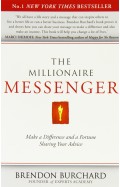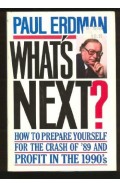Lights Out: Pride, Delusion, and the Fall of General Electric
By: Thomas Gryta
-
Rs 3,905.75
- Rs 4,595.00
- 15%
You save Rs 689.25.
Due to constant currency fluctuation, prices are subject to change with or without notice.
"If you’re in any kind of leadership role—whether at a company, a non-profit, or somewhere else—there’s a lot you can learn here."—Bill Gates, Gates Notes
How could General Electric—perhaps America’s most iconic corporation—suffer such a swift and sudden fall from grace?
This is the definitive history of General Electric’s epic decline, as told by the two Wall Street Journal reporters who covered its fall.
Since its founding in 1892, GE has been more than just a corporation. For generations, it was job security, a solidly safe investment, and an elite business education for top managers.
GE electrified America, powering everything from lightbulbs to turbines, and became fully integrated into the American societal mindset as few companies ever had. And after two decades of leadership under legendary CEO Jack Welch, GE entered the twenty-first century as America’s most valuable corporation. Yet, fewer than two decades later, the GE of old was gone.
Lights Out examines how Welch’s handpicked successor, Jeff Immelt, tried to fix flaws in Welch’s profit machine, while stumbling headlong into mistakes of his own. In the end, GE’s traditional win-at-all-costs driven culture seemed to lose its direction, which ultimately caused the company’s decline on both a personal and organizational scale. Lights Out details how one of America’s all-time great companies has been reduced to a cautionary tale for our times.
"If you’re in any kind of leadership role—whether at a company, a non-profit, or somewhere else—there’s a lot you can learn here."—Bill Gates, Gates Notes
How could General Electric—perhaps America’s most iconic corporation—suffer such a swift and sudden fall from grace?
This is the definitive history of General Electric’s epic decline, as told by the two Wall Street Journal reporters who covered its fall.
Since its founding in 1892, GE has been more than just a corporation. For generations, it was job security, a solidly safe investment, and an elite business education for top managers.
GE electrified America, powering everything from lightbulbs to turbines, and became fully integrated into the American societal mindset as few companies ever had. And after two decades of leadership under legendary CEO Jack Welch, GE entered the twenty-first century as America’s most valuable corporation. Yet, fewer than two decades later, the GE of old was gone.
Lights Out examines how Welch’s handpicked successor, Jeff Immelt, tried to fix flaws in Welch’s profit machine, while stumbling headlong into mistakes of his own. In the end, GE’s traditional win-at-all-costs driven culture seemed to lose its direction, which ultimately caused the company’s decline on both a personal and organizational scale. Lights Out details how one of America’s all-time great companies has been reduced to a cautionary tale for our times.
Lights Out: Pride, Delusion, and the Fall of General Electric
By: Thomas Gryta
Rs 3,905.75 Rs 4,595.00 Ex Tax :Rs 3,905.75
Zubin Mehta: A Musical Journey (An Authorized Biography)
By: VOID - Bakhtiar K. Dadabhoy
Rs 892.50 Rs 1,050.00 Ex Tax :Rs 892.50
Prisoners of Geography - Ten Maps That Tell You Everything You Need to Know about Global Politics
By: Tim Marshall
Rs 6,745.50 Rs 7,495.00 Ex Tax :Rs 6,745.50
The Ride of a Lifetime: Lessons in Creative Leadership from 15 Years as CEO of the Walt Disney Company
By: Robert Iger
Rs 3,310.75 Rs 3,895.00 Ex Tax :Rs 3,310.75
The Black Swan The Impact Of The Highly Improbable
By: Nassim Nicholas Taleb
Rs 2,965.50 Rs 3,295.00 Ex Tax :Rs 2,965.50
Inside Apple How Americas Mo Admired And Secretive Company Really Works
By: Adam Lashinsky
Rs 1,147.50 Rs 1,350.00 Ex Tax :Rs 1,147.50
Buyology How Everything We Believe About Why We Buy Is Wrong
By: Martin Lindstrom
Rs 2,695.50 Rs 2,995.00 Ex Tax :Rs 2,695.50
The 3rd Alternative Solving Life s Most Difficult Problems
By: Stephen Covey
Rs 675.75 Rs 795.00 Ex Tax :Rs 675.75
Building Social Business The New Kind Of Capitalism That Serves Humanitys Most Pressing Needs
By: Muhammad Yunus
Rs 400.00 Ex Tax :Rs 400.00
Prisoners of Geography - Ten Maps That Tell You Everything You Need to Know about Global Politics
By: Tim Marshall
Rs 6,745.50 Rs 7,495.00 Ex Tax :Rs 6,745.50
The Ride of a Lifetime: Lessons in Creative Leadership from 15 Years as CEO of the Walt Disney Company
By: Robert Iger
Rs 3,310.75 Rs 3,895.00 Ex Tax :Rs 3,310.75
The Influence Formula - 4 Steps to Help You Lead Anyone Well
By: John C. Maxwell
Rs 2,970.75 Rs 3,495.00 Ex Tax :Rs 2,970.75
Self Made: The Life and Times of Madam C. J. Walker Paperback
By: A’Lelia Bundles
Rs 1,695.75 Rs 1,995.00 Ex Tax :Rs 1,695.75
Indistractable: How to Control Your Attention and Choose Your Life
By: Nir Eyal
Rs 2,515.50 Rs 2,795.00 Ex Tax :Rs 2,515.50
Namesake - Reflections on a Warrior Woman
By: N. S. Nuseibeh
Rs 3,595.50 Rs 3,995.00 Ex Tax :Rs 3,595.50
Hello from Heaven: Messages of Love and Hope Through After-Death Communication
By: Bill Guggenheim And Judy Guggenheim
Rs 2,290.75 Rs 2,695.00 Ex Tax :Rs 2,290.75
Hide and Seek - The Unmissable New Crime Thriller for 2022 from the Top Ten Sunday Times Bestsel Ling Author of All Her Fault
By: Andrea Mara
Rs 2,035.75 Rs 2,395.00 Ex Tax :Rs 2,035.75
Black Box Thinking Marginal Gains and the Secrets of High Performance
By: Matthew Syed
Rs 2,375.75 Rs 2,795.00 Ex Tax :Rs 2,375.75
Shameful Flight: The Last Years of the British Empire in India - Paperback
By: Stanley Wolpert
Rs 823.50 Rs 915.00 Ex Tax :Rs 823.50
The Interior Design Handbook - Furnish, Decorate, and Style Your Space
By: Frida Ramstedt
Rs 7,375.50 Rs 8,195.00 Ex Tax :Rs 7,375.50
More Than a Woman: The instant Sunday Times number one bestseller
By: Caitlin Moran
Rs 1,610.75 Rs 1,895.00 Ex Tax :Rs 1,610.75
General Knowledge Crosswords (Activity Pads): 1 (Puzzles, Crosswords & Wordsearches)
By: Phillip Clarke
Rs 1,270.75 Rs 1,495.00 Ex Tax :Rs 1,270.75
Start With Why: How Great Leaders Inspire Everyone To Take Action
By: Simon Sinek
Rs 2,205.75 Rs 2,595.00 Ex Tax :Rs 2,205.75
The Greatest Self-Help Book (Is the One Written by You) - A Journal
By: Vex King
Rs 4,135.50 Rs 4,595.00 Ex Tax :Rs 4,135.50
What's Next? How to Prepare Yourself for the Crash of '89 and Profit in the 1990's
By: Paul Emil Erdman
Rs 480.00 Rs 1,200.00 Ex Tax :Rs 480.00
How to Win the Gruesome Games (Volume 3)
By: Ryan Hammond
Rs 1,795.50 Rs 1,995.00 Ex Tax :Rs 1,795.50
Vax-Unvax - Let the Science Speak
By: Robert F. Kennedy Jr.
Rs 6,295.50 Rs 6,995.00 Ex Tax :Rs 6,295.50
War Bodies - An Action-packed, Apocalyptic, Sci-fi Adventure
By: Neal Asher
Rs 2,155.50 Rs 2,395.00 Ex Tax :Rs 2,155.50
Shadow State - Murder, Mayhem and Russia's Remaking of the West
By: Luke Harding
Rs 1,780.75 Rs 2,095.00 Ex Tax :Rs 1,780.75
Apartment Building Architecture - Contemporary Solutions
By: Chris van Uffelen
Rs 15,995.00 Ex Tax :Rs 15,995.00
Zubin Mehta: A Musical Journey (An Authorized Biography)
By: VOID - Bakhtiar K. Dadabhoy
Rs 892.50 Rs 1,050.00 Ex Tax :Rs 892.50
Lights Out: Pride, Delusion, and the Fall of General Electric
By: Thomas Gryta
Rs 3,905.75 Rs 4,595.00 Ex Tax :Rs 3,905.75
Prisoners of Geography - Ten Maps That Tell You Everything You Need to Know about Global Politics
By: Tim Marshall
Rs 6,745.50 Rs 7,495.00 Ex Tax :Rs 6,745.50
The Ride of a Lifetime: Lessons in Creative Leadership from 15 Years as CEO of the Walt Disney Company
By: Robert Iger
Rs 3,310.75 Rs 3,895.00 Ex Tax :Rs 3,310.75












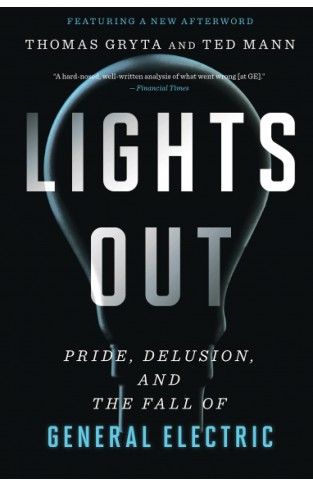
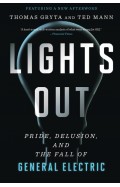
-120x187.jpg?q6)










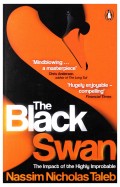



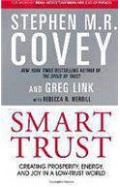
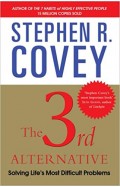

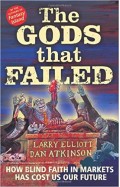

/islam-a-concise-introduction-120x187.jpg?q6)
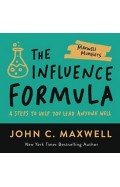



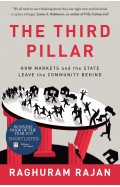



-120x187.jpg?q6)




















